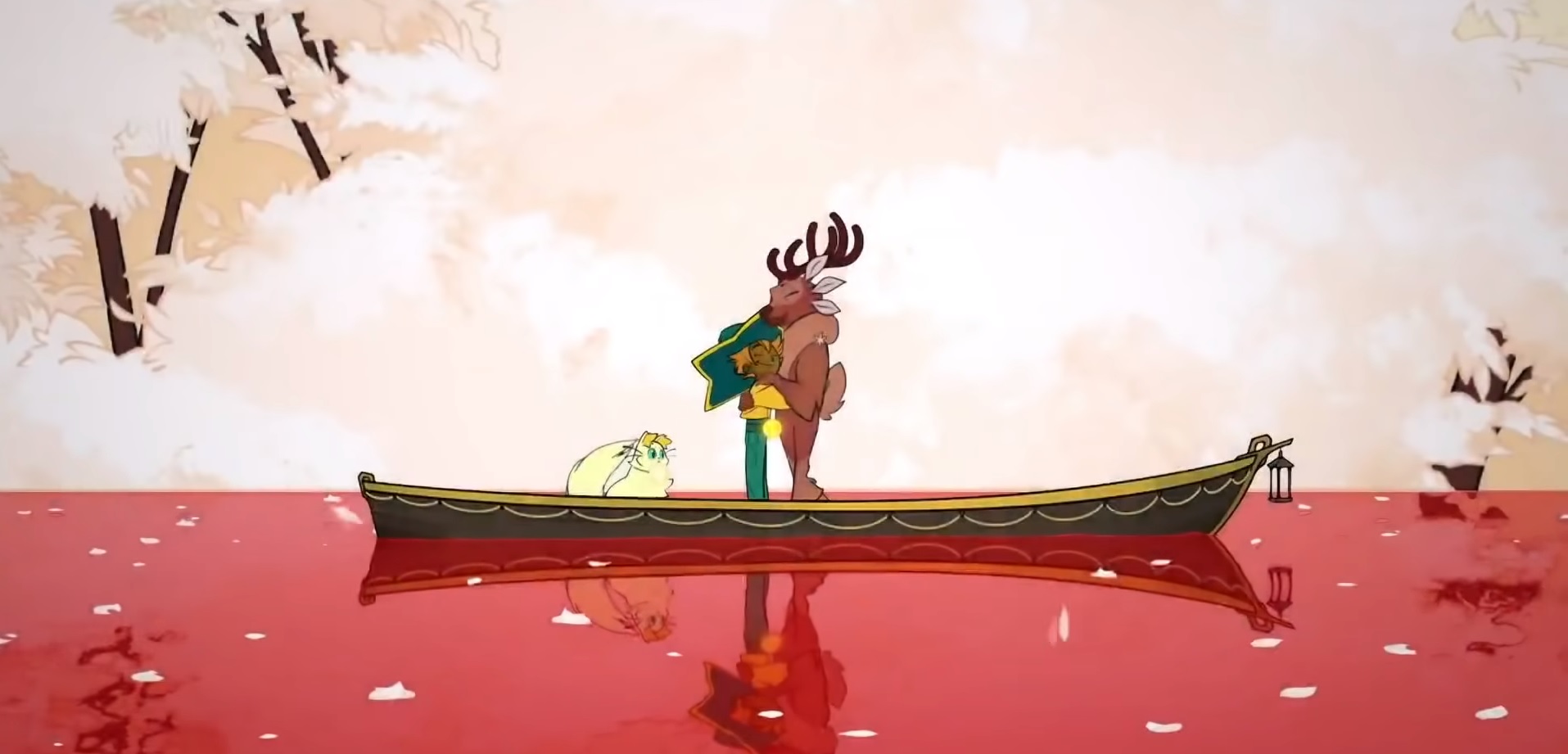Our Verdict
A thought-provoking and bittersweet adventure that understands that death is part of living.
PC Gamer's got your back
What is it? A wholesome life-sim where you ferry spirits into the afterlife
Expect to pay $30 / £24
Developer Thunder Lotus
Publisher Thunder Lotus
Reviewed on i5-2500K, 8GB RAM, GTX 670
Multiplayer Yes
Link Official site
Spiritfarer's lead writer and creative director Nicholas Guérin was at Ubisoft before he joined Thunder Lotus Games. During his nine years there, he worked on the Assassin's Creed series as a level designer, creating scenarios that would let players efficiently and brutally stab people in the neck in acts of vengeful fun. Wanting to create something a little closer to home, Guérin joined Thunder Lotus to develop a game where "everything centered around care"—that approached the topic of death with compassion and openness. Spiritfarer, a life sim about dying, does exactly that.
You play as Stella, an upbeat ferry master who is responsible for finding and helping wandering spirits pass on into the afterlife. After inviting the spirits to stay on your boat, you take care of them and make sure they live comfortably on your vessel. Then, when they decide they're ready to move on, you take them to a huge, ominous portal called the Everdoor, and see their journey through to the end. Sometimes the goodbyes are easy but, more often than not, they are bittersweet farewells to characters you've grown to love.
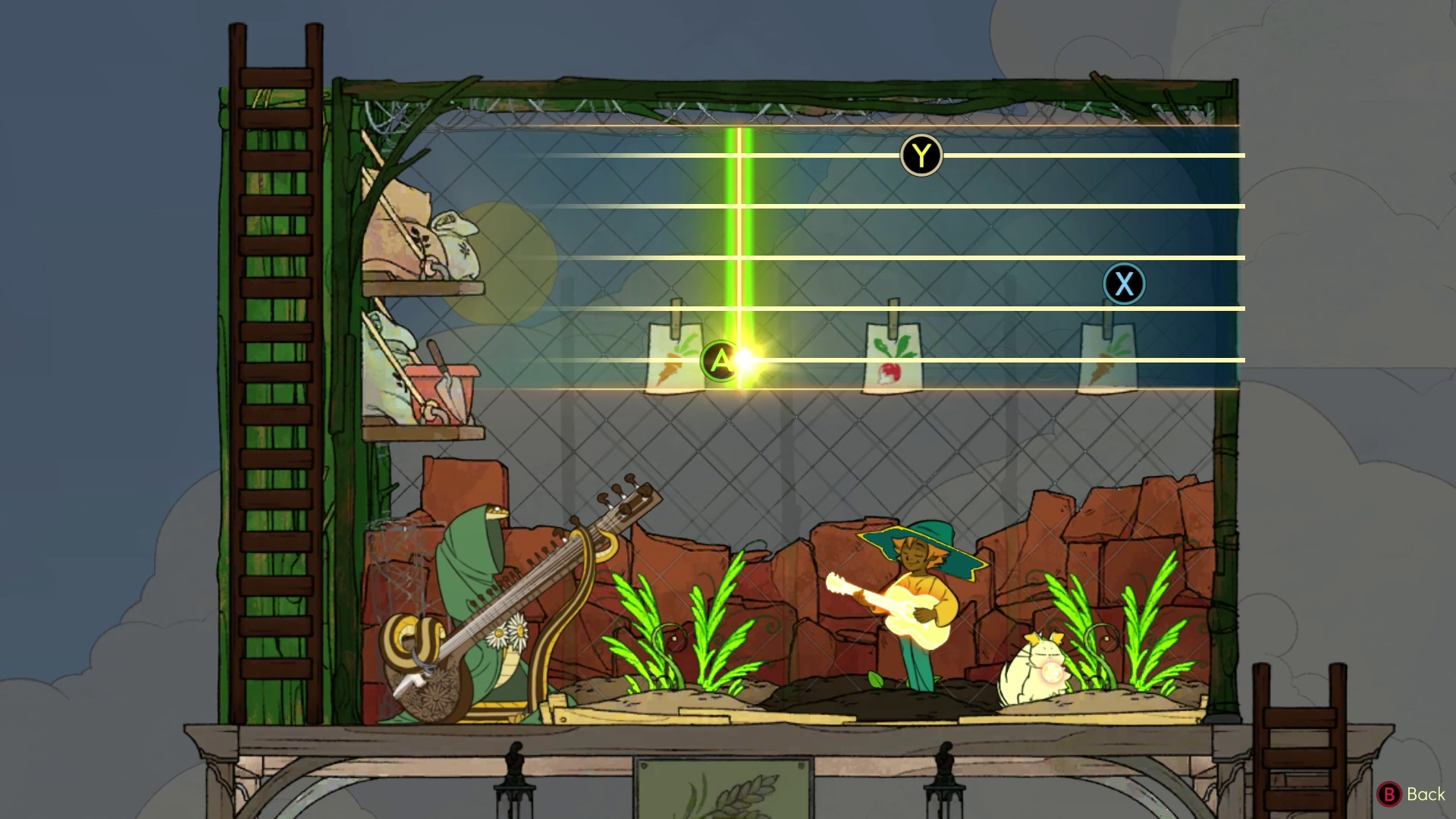
This gentle cycle is made all the more difficult because you take care of each spirit when they board your boat. You're tasked with crafting a personal space for each character, preparing their preferred foods, and keeping them happy with plenty of hugs. Very much in keeping with the life sim formula, you'll need to complete little tasks at all the boat's different stations—cooking, crafting, farming, weaving, smelting and so on.
For example, I know that the majestic deer Gwen loves black coffee and, to give her a pick-me-up, I plan on making her one damn fine cup of joe. I first need to plant the coffee bean seeds, water them until they're ready to harvest, and then take the beans to the kitchen to make the coffee. Gwen is a pretty serious character, but a cup of java always cheers her up. She's happy, I'm happy, and I think maybe this game won't make me cry after all? I'm very much mistaken.
Running around your boat to different stations, especially when you upgrade your boat a couple of sizes, is always a frenzied platforming spree of spinning, jumping, and gliding. Each station has a mini-game to keep things fun, like timing your weaving to make sure the needle lands on the target, or keeping the temperature in between two dials when you're smelting metals. For a relatively peaceful game, there's always a flurry of activity.
These daily chores are the foundation of life sims, where the repetition of scavenging, harvesting and crafting becomes a comfortable cycle. Normally these tasks have a certain amount of self-service, like decorating your room, dressing up your character, or making a big ol' wad of cash. But Spiritfarer is different. Your actions are purely out of compassion and selflessness. This might sound like a drag because it seems like you're not getting anything back, but the exchange is focused on your relationship with the characters instead of the monetary gain. It's a refreshing take on the genre, and one that fits the themes of the game perfectly without the expense of frustrating the player.
It's because of these daily tasks that you get to know the characters closely in such a short amount of time. You get to understand their likes and dislikes, their favourite foods, how they spend their free time, and the families they left behind. As thanks for looking after them, the spirits teach you skills that help out with your daily tasks.
Keep up to date with the most important stories and the best deals, as picked by the PC Gamer team.
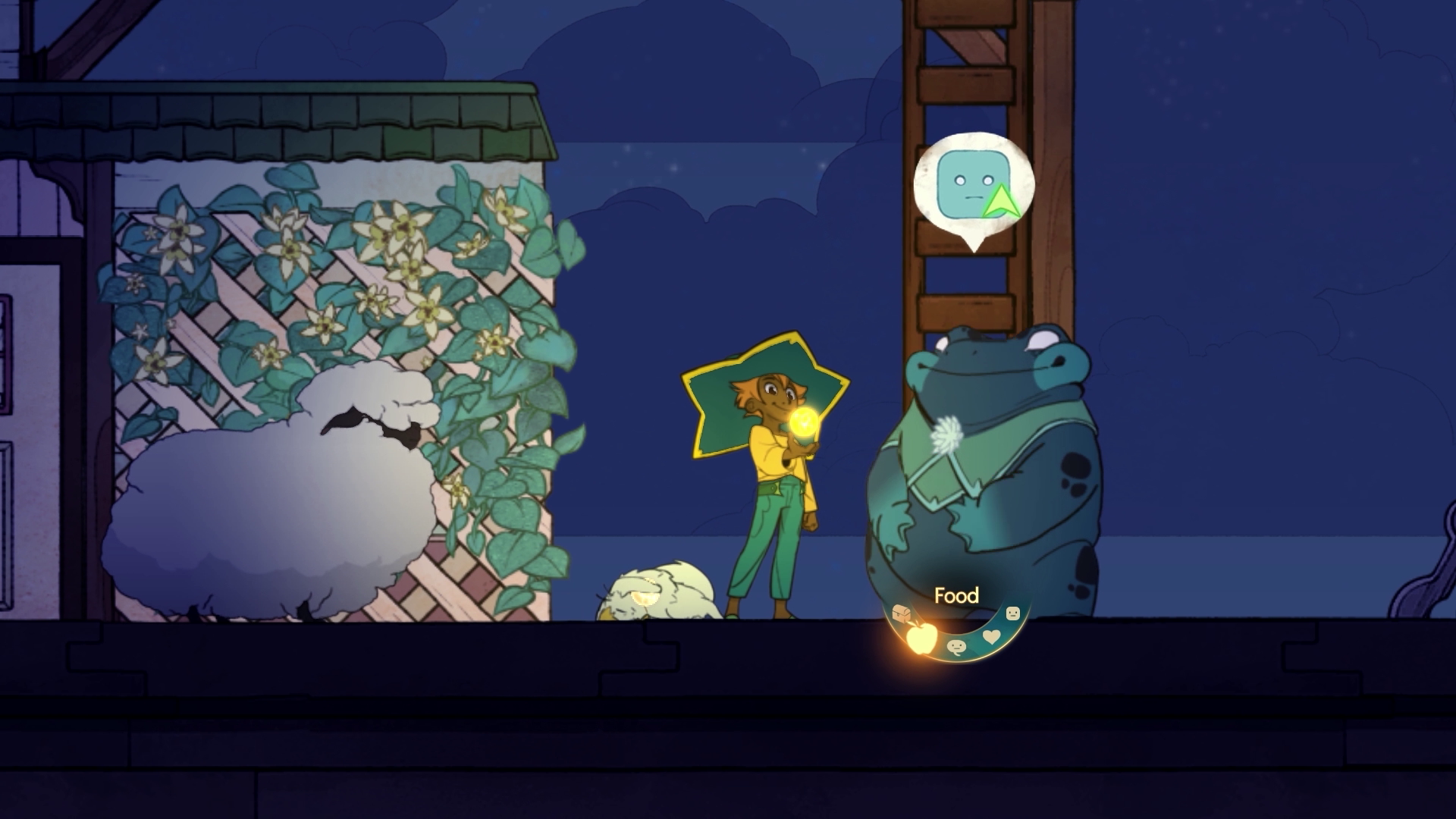
The backstories of these characters are not the usual fluff you might see in community sims like Animal Crossing or Stardew Valley. They hit harder because these characters are, well, dead.
Through this exchange, you develop a closeness to each individual and they begin to open up about their past life. When I give the chirpy frog Atul some popcorn, he's ecstatic at first because he loves any food I give him, but then talks about how he misses movie nights with his family.
The backstories of these characters are not the usual fluff you might see in community sims like Animal Crossing or Stardew Valley. They hit harder because these characters are, well, dead. They reminisce on their old lives, the families they left behind, good times, bad times, and of course, their own deaths. In this way, they are more than just boat passengers, they're friends, teachers, guides, and confidants. When it's time to say goodbye, it's a little more than just a handshake and a 'goodluck!'
Each character has their own unique reasons for deciding to eventually leave the boat. Some of them have finally been able to let go of their past, have accepted what's happened to them, have forgiven a person from their old life. Some of them don't have a reason at all. When each character left, I found myself thinking of them often. Whenever I made a cup of coffee in the boat's kitchen I thought of Gwen. As I played the sitar to help my crops grow, Summer would pop into my mind. Every time I collected berries I would always think of Atul's excited animation.
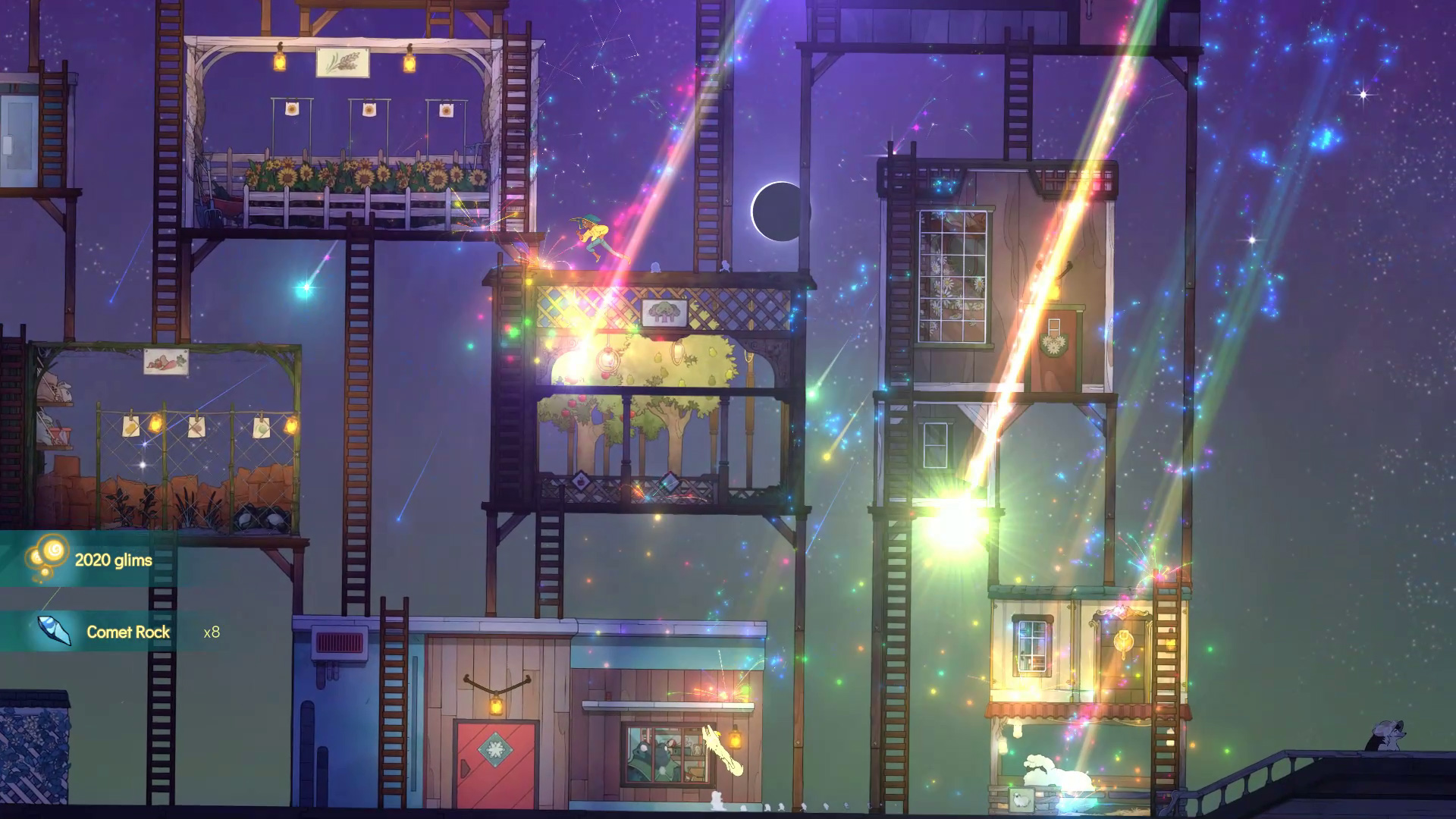
Life in limbo
Travelling around the seas in Spiritfarer you can see Thunder Lotus' previous games, Jotun and Sundered, in its world-building. Life on your boat might be a slice of peaceful bliss, but there are plenty of colossal creatures beneath the surface—thankfully no dangerous ones. Ancient dragons roam Spiritfarer's waters and the colossal sea turtles are always up for a chat if you stop for one.
Ancient dragons roam Spiritfarer's waters and the colossal sea turtles are always up for a chat if you stop for one.
There's a feeling that this realm is home to many forgotten spirits and gods, but Thunder Lotus leaves things deliberately vague. Guérin has previously mentioned that the team didn't want to place any ideas about the afterlife on players, which is why I feel things are kept ambiguous. I understand the sentiment, but it sometimes muddies the clarity of the characters' intentions. I was never sure if the characters and NPCs were trapped in this realm, how long they had been here for, or if they really wanted to leave.
The one feature where this purposeful vagueness did work well is the Everdoor. In Spiritfarer, no one truly knows what's on the other side as you enter the elusive doorway. It could be something beautiful, or scary, or absolutely nothing. Deciding to go through it is an uneasy choice, but one that Spiritfarer's characters still ultimately want to make. Thunder Lotus always wanted Sprirtfarer to be a death-positive game, and this is where that point shines the strongest. Stella's role in Spiritfarer is vital because it gives these characters the time and space to reflect. Many of them come to terms with life-long traumas on the ship as they think back on their past lives and how they lived. They accept that it's time to move on to what's next, whatever that may be.
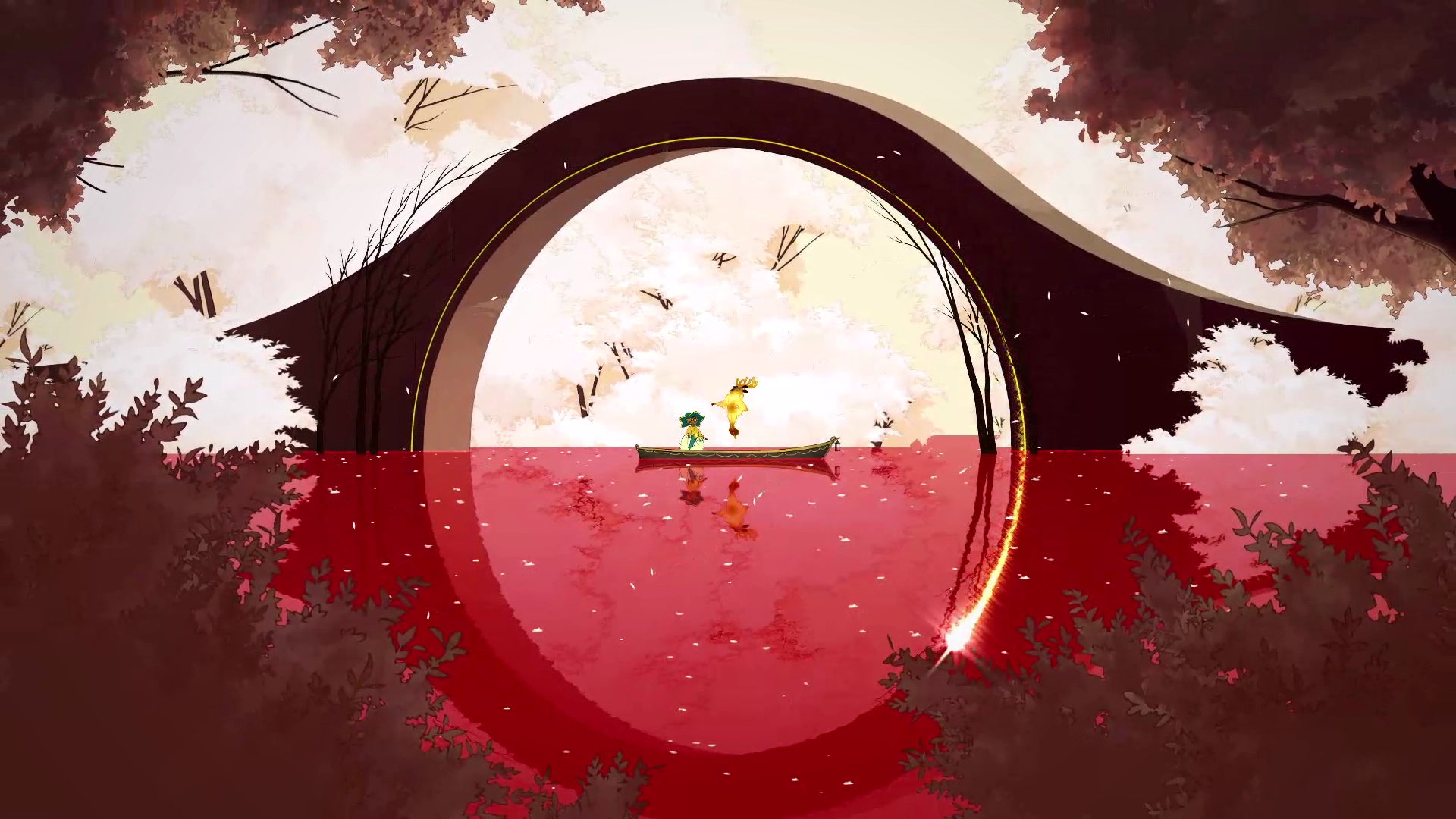
At the end of Spiritfarer, the first names in the credits are the relatives of Thunder Lotus' team members who have passed away, many of whom were inspirations for characters in the game. It's a small but powerful choice that sums up the game completely: that those who have died are not forgotten and that they still live on in those they knew.
Spiritfarer understands that death isn't only when someone isn't around anymore, but encapsulates the feelings and memories you have for a person when they are gone. Some aspects of the world are a little abstract, but the concept and emotions that the studio wanted to get across are crystal clear. Thunder Lotus have managed to create a cosy boat sim that deals with the topics of death and compassion with masterful balance. That's quite an achievement.
A thought-provoking and bittersweet adventure that understands that death is part of living.
Rachel had been bouncing around different gaming websites as a freelancer and staff writer for three years before settling at PC Gamer back in 2019. She mainly writes reviews, previews, and features, but on rare occasions will switch it up with news and guides. When she's not taking hundreds of screenshots of the latest indie darling, you can find her nurturing her parsnip empire in Stardew Valley and planning an axolotl uprising in Minecraft. She loves 'stop and smell the roses' games—her proudest gaming moment being the one time she kept her virtual potted plants alive for over a year.
